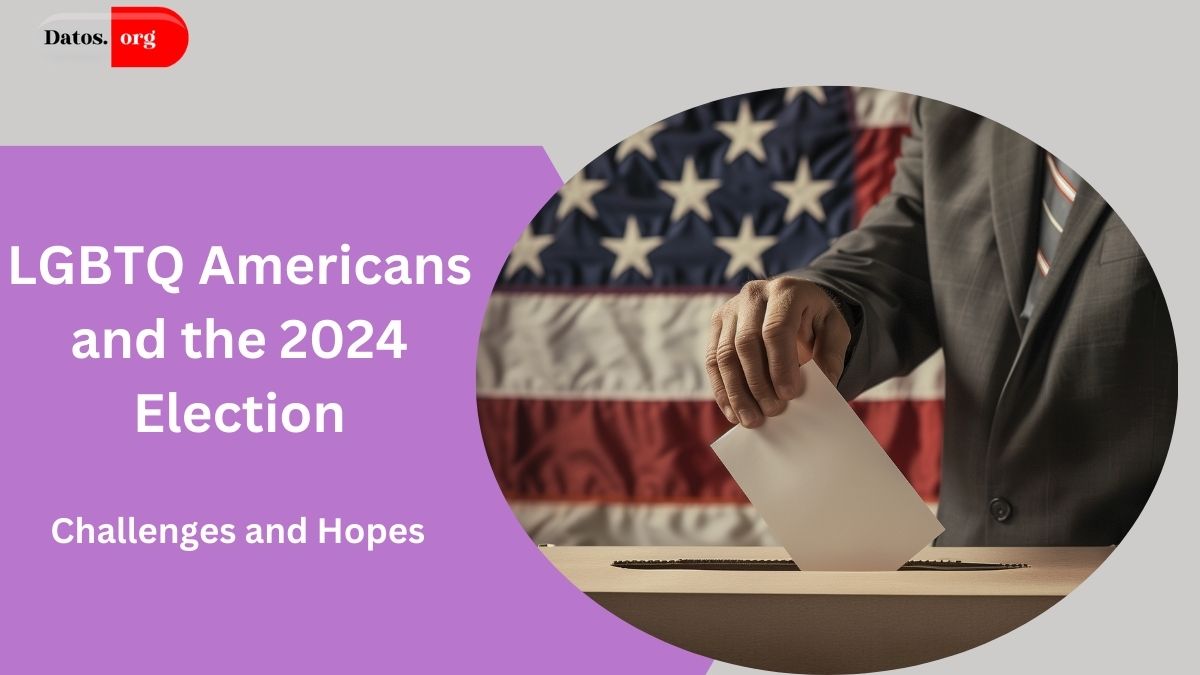The 2024 U.S. presidential election concluded with Donald Trump securing a second term, a result that has deeply affected the LGBTQ community. For many, the election brought a mix of anxiety, fear, and determination to navigate a challenging political landscape.
From anti-LGBTQ rhetoric to potential legislative changes, the community faces significant hurdles while continuing to advocate for equality and justice.

Election Results and Immediate Reactions
The election saw Trump decisively defeating Vice President Kamala Harris, flipping key battleground states and strengthening his support among conservative voters.
However, the LGBTQ community and its allies overwhelmingly backed Harris, with exit polls indicating that 86% of LGBTQ voters supported her compared to only 13% for Trump.
Despite this strong Democratic support, the results highlighted a growing divide in the nation. LGBTQ advocates described the election outcome as a “threat to safety and freedom,” particularly for transgender individuals, who were targeted by aggressive campaign rhetoric.
Key Challenges for the LGBTQ Community
The Trump administration has previously rolled back protections for LGBTQ Americans, and concerns are rising over what his second term could bring. Advocacy groups like GLAAD and the Human Rights Campaign have pointed to multiple areas where LGBTQ rights could be jeopardized:
- Healthcare Access:
Transgender individuals fear losing access to gender-affirming care due to proposed restrictions on medical treatments. These limitations could affect insurance coverage, hormone therapy, and related healthcare services. - Anti-Discrimination Protections:
The rollback of federal anti-discrimination policies remains a critical issue. The community is particularly concerned about legal battles over workplace rights, housing, and public accommodations. - Marriage Equality:
With the Supreme Court potentially revisiting landmark cases, including Obergefell v. Hodges, many same-sex couples worry about the future of marriage equality. - Education and Youth Support:
Policies aimed at banning LGBTQ-related curriculum in schools, coupled with restrictions on transgender youth participation in sports, threaten to marginalize young people further.
The Impact of Anti-LGBTQ Campaign Rhetoric
The Trump campaign’s messaging included direct attacks on transgender individuals, using divisive language and policies as rallying points.
For example, advertisements accused opponents of prioritizing “they/them” pronouns over “real issues,” while campaign speeches amplified debates over trans athletes and gender identity in schools.
Such rhetoric has had tangible consequences. The Trevor Project, an organization providing crisis support to LGBTQ youth, reported a 700% spike in calls following the election.
Research indicates that political hostility significantly impacts the mental health and well-being of LGBTQ individuals, especially transgender youth.
Looking Ahead: Community Resilience and Advocacy
Despite these challenges, the LGBTQ community remains steadfast in its fight for equality. Advocates are focusing on several strategies to protect and expand rights:
- Legal Action:
Upcoming Supreme Court cases, such as United States v. Skrmetti, will determine the legality of state-level bans on gender-affirming care. These decisions could set critical precedents for transgender rights nationwide. - Community Support:
Social media platforms and local organizations have become vital spaces for sharing resources, such as guides on updating legal documents and accessing safe healthcare providers. - Political Engagement:
Advocacy groups are urging LGBTQ voters and allies to stay involved in local and national politics. Grassroots movements are gaining momentum to counter restrictive policies and elect supportive leaders. - Education and Awareness:
Efforts to combat misinformation about LGBTQ identities are crucial. Advocates emphasize the importance of listening to lived experiences to foster empathy and understanding.
The 2024 election has undeniably shifted the political landscape for LGBTQ Americans. However, resilience and solidarity within the community offer hope for progress. As Melanie Willingham-Jaggers, Executive Director of GLSEN, stated:
“The fight for safety and freedom is ongoing, but our strength lies in our collective voice.”
While uncertainties remain, the commitment to equality and human dignity continues to drive advocacy efforts. The LGBTQ community’s response to these challenges will shape the future of civil rights in the United States.
Disclaimer: This article aims to provide an accurate overview of the challenges and perspectives surrounding LGBTQ issues after the 2024 election. It does not reflect the views of any political organization or party.
Click here to know more.

I am a passionate technology and business enthusiast, constantly exploring the intersection where innovation meets entrepreneurship. With a keen eye for emerging trends and a deep understanding of market dynamics, I provide insightful analysis and commentary on the latest advancements shaping the tech industry.